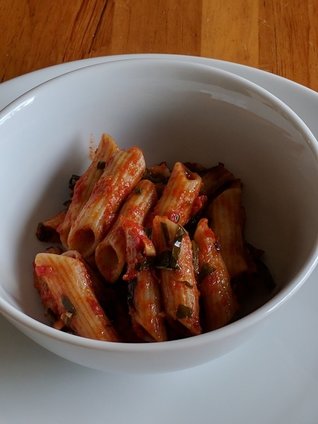A couple of weeks ago, I had the pleasure of teaching a cooking class about meal planning. The day of the class I had an epiphany that meal planning is really about self esteem. Meal planning is about your relationship to time and how you view time is often a reflection of how you value yourself and others. I know you didn't expect an emotional deep dive around meal planning, and yet there it is. Meal planning will save you time. Your time is valuable because you are valuable. If you devote yourself to it, not only will it save you time, it will also help you improve your health.
It was a great group of ten women, who asked amazing questions, and who are committed to improving their overall health. They inspired me! It became obvious to me that they weren't meal planning because it wasn't clear to them that meal planning could be done with simple, delicious, and healthy recipes. Often, there are fears that healthy equals tastes bad, requires special ingredients, and must be made on equipment you would only find in a restaurant kitchen. Also, that recipes will take a lot of time, especially on weekdays when time can be most taxed.
I have good news! None of this has to be true. If you know me, then you know that I don't do precious in the kitchen, I will walk away from recipes with more than about six ingredients, and shake my fist at recipes that require me to use every pan in my house. That's ridiculous. I'm here to tell you that delicious, healthy, simple food can be yours on a regular basis.
To start, I am presenting you with my husband's enjoyable marinara sauce recipe that costs less than the jarred stuff, has no sugar (the jarred stuff usually does), and is simple to make. The recipe is written by Brian.
Brian's Marinara Sauce
Serves 4-6
- One 28-ounce can crushed San Marzano tomatoes
- Quite a lot of extra virgin olive oil. I just drizzle it around until it looks like enough, generally coating the entire top of the tomato sauce in our copper-bottom saucepan. 1/4 to 1/3 cup.
- Minced fresh garlic. Five or six big cloves, more if the cloves are smaller.
- Chopped fresh basil. I used about half the package from Trader Joes. It probably would have been at least a cup full after being chopped. Looking at it on the cutting board, it will look like too much, but the basil will wilt like spinach when added to the sauce.
- Dried red pepper flakes. I put in a few shakes, maybe 1/8 to 1/4 teaspoon.
- No salt, no pepper.
- Pour the can of crushed tomatoes into a saucepan and start heating it on low flame. Really, you need to use a low flame or the bottom will burn and stick to the pan.
- Pour in the olive oil and stir to emulsify. You might be tempted to use a whisk, but you need to resist that temptation and go for something like a wood spoon. With a whisk, the crushed tomato bits will get stuck in the whisk wires and then it'll be like stirring with the handle of a baseball bat, not very effective, and you'll have to get those tomato bits out of the whisk somehow, which will most likely result in them not being in the sauce where they belong. So just use a spoon. You need to stir slowly, or the oil will slosh out of the saucepan. It's going to take some time to get it all emulsified. Be patient.
- As the sauce continues to heat, mince your garlic and chop your basil and add it to the sauce as you go. Order and timing are not too important here. Also add red pepper flakes to taste.
- Once the sauce is at a consistent simmer, put a splatter guard over it and keep stirring occasionally until it has thickened to the consistency you like. You can make it ahead. Like many sauces and stews, it's better the second day.
Nutritional awesomeness: Crushed tomatoes have a low glycemic load and are a good source of Vitamins A and C. Fresh basil contains Vitamin K, which helps blood clot and builds strong bones. You can read more about Vitamin K here. Vitamin K is fat soluble so it's good there's olive oil in the sauce. Olive oil is a monounsaturated fatty acid that has been shown to help lower bad cholesterol. It contains polyphenols which are powerful antioxidants. Studies in Europe have concluded that olive oil consumption helps lower blood pressure. One Greek study with 36,000 participants concluded that there is an inverse relationship between eating olive oil and rates of cancer.


 RSS Feed
RSS Feed